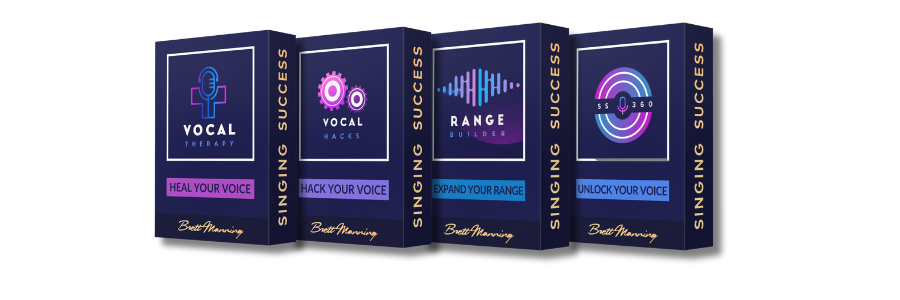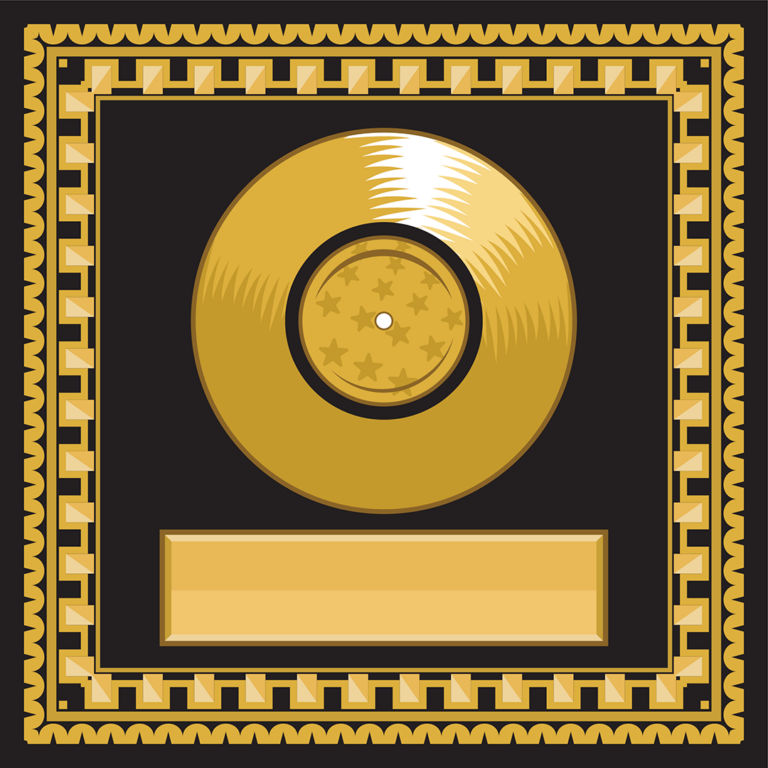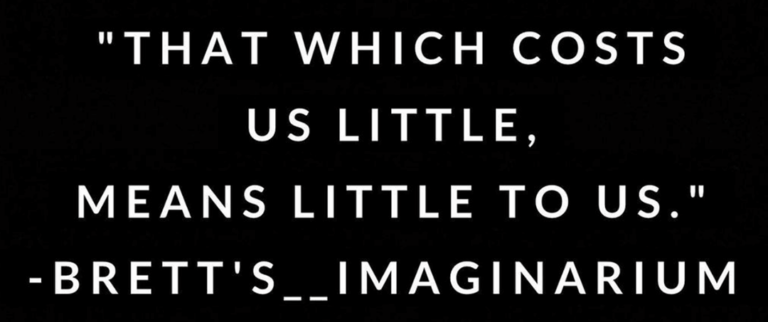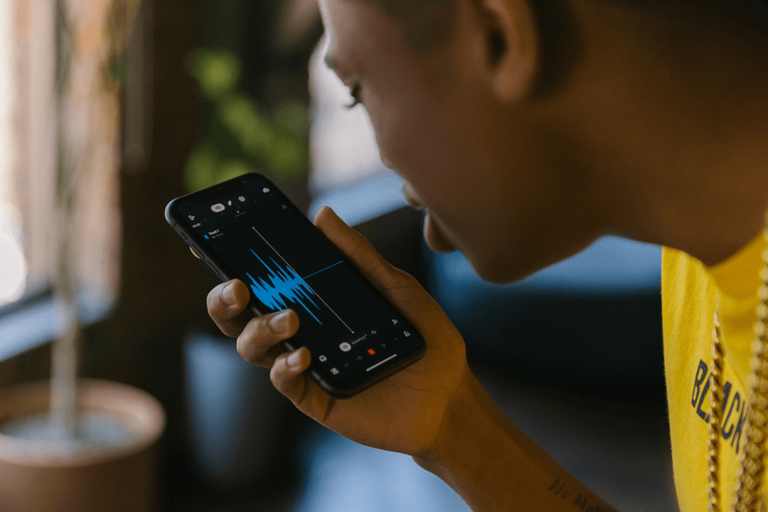I’ve had the honor, joy, struggle, challenge, privilege and pleasure of coaching 10’s of 1,000’s of singers for nearly 3 and 1/2 decades.
So…you could say that I’m perfectly situated to answer this question. But my answer won’t satisfy you the way you might hope. Brace yourself for this grandiose answer….
“IT DEPENDS”
Yep! That’s it. It depends. It depends on a number of factors. But let me just break these down to a few tangibles. It really just depends on…
Are you naturally gifted?
Are you self disciplined?
Do you have an effective vocal coach?
Are you healthy?
Are you patient?
Patience is the noble quality that will keep you from quitting, from self frustration, from judging yourself by your worst days and….patience will keep you seeking for the answers!
Fast-Track Your Success!!

VIP Membership includes:
- Exclusive Facebook Group
- Interact with our vocal coaches–ask them YOUR question
- Live warmups
- Masterclasses and Q&As with Brett Manning and his guests
- SS360 QuickStart Program
- SS360 – The FULL Systematic Vocal Course
- Vocal Hacks
- Range Builder
- Mastering Mix
- Mastering Harmony
- Mastering Vibrato
- Vocal Therapy
- Plus…exclusive content only found here all along the way!
You can struggle on your own, or you can get direct access to the Nashville Coaches who have launched some of the biggest names in the music industry.
What to Know Before Learning to Sing
“Successful doctors have patients. Noble doctors have patience”. This was my recent post from my quote page. (Admittedly it feels a little strange to quote myself…but I want to share my thoughts, no matter if folks like it or not). Feel free to follow me here and make some comments. I want to meet y’all.
For the rest of this article, I’ll be sharing very tangible knowledge and action hacks that will help you shorten your timeline towards excellence. If you’re still asking, “How long does it take to learn to sing?,” then read on and receive some deep encouragement!
If you’re a brand new singer, know this… you have no idea how high you can fly!

Understanding Your Singing Voice
In the summer of 1991, I took my first lesson with the great, master vocal coach, Seth Riggs. Seth had popularized Robert Weir’s (affectionately referred to as “Pop Weir” by his star clients) term “Speech Level Singing” and had several associates around the country and eventually the world.
I had studied for 3 years with one of his associates, but at the time, this associate singing teacher had plenty of his own ideas that contradicted Seth. Many of them were just a different spin on “Speech Level Singing” or even the predecessor to this method, called “Bel Canto”, which is Italian for “Beautiful Singing”. But some….? Well, read on.
Leading up to this lesson, I had explored many methods, learned countless singing exercises, had countless singing lessons, and I understood the anatomy of the vocal cords.
In the first 10 minutes of my first session with Seth, I was dumbfounded! The first thought that came to me was, “So, this is how the voice works”. I’ll explain….
Seth had me sing on a 5 tone scale on the vowel “ah”. As we approached the ‘bridge,’ or what some refer to as the ‘break’ area of the voice, I had 3 choices…
- Flip into falsetto- this has become popular in much commercial music, but singers will always have their melody interrupted by the ‘break, flip or crack’ sound. Furthermore, singers will have a loss of power and diminished tone quality.
- Pull up chest voice- this choice is the most common with many gutsy singers. This isn’t a good gutsy, because you end up pushing the chest voice straight out of the mouth as a preferred resonator. Meaning, I don’t feel any nasal or head resonance. This was me!
- Mix the voices together- Seth pointed out that I was pulling up my chest voice past my first bridge or ‘break’ area (E-F-F# above middle C) and that I was working too hard to sing high. But option one, falsetto, wasn’t preferable. Then, Seth sang on a pure ‘oh’ vowel and floated through his bridge effortlessly. He said that I needed to go behind the soft palate, instead of singing into my hard palate.
I was instantly blown away. He went on to give me a series of vocal exercises to redirect me into my mix, up to a high C! Then, we went higher! Much higher!!! Now, I have been known as that guy with over 5 octaves of range. Although, I really am happy singing a song in the style and range of Coldplay.
I later became a master associate and teacher trainer under Seth’s organization. Many years later, I would create a program utilizing Speech Level ideology and apply that to style as well. Furthermore, my brain was created as an innovator. So, I expanded on the brilliant principles I’d learned, created associates around the world, and created and developed a top selling Singing Courses sold in nearly 200 countries.
I only hope and pray that I go down as someone who has honorably extended the legacy of Seth and his predecessors.
Basic Music Theory Lessons
Believe it or not, MOST commercial singers—pop, rock, indie, country, folk, blues, R&B—have little or no music theory lessons.
How is this possible? Think of all the child prodigies who just open up and sing well at 8, 9 or 10 years old. They feel music and let their ear guide them.
HOWEVER (I just love that word.)
If you’re ignoring the knowledge (music theory) behind the structure and function of chords, chord progressions, harmony, melodic motifs (themes) and rhythms, then you are limiting yourself. Greatness and progress extend with greater knowledge.
If you want to know how long it takes to learn to sing, just know that the road will be longer without this knowledge. Practice sessions go much smoother knowing that you’re not just practicing your voice through a set of singing exercises, but you are also building your musicality.
Some of the greatest singers I’ve known have had their producers tell me that they had to work extra long on the rhythm of their best singers because they lacked the knowledge of how to count in a phrase of sing in-between beats.
The Benefits of a Vocal Coach
Living in L.A., Utah and Nashville, and traveling all over the world and doing countless masterclasses, I can say categorically that NEARLY every great singer or professional singer I’ve met had a good teacher and possessed, at bare minimum, a working knowledge of vocal technique.
Music schools throughout the world have brought me out to give master classes to large groups of people at one time because I can always hear singers with the right techniques. I can also tell if they’ve had consistent practice sessions, because they have more power, more range and are noticeably better than other singers who’ve had limited or no coaching. Although, there’s those rare singers who’ve never had a lesson… 99% are not those people.
Singing lessons should typically move in threes phases.
- Technique- warming up, coordinating and strengthening the vocal cords to hit high notes via extending head voice (and possibly even whistle voice). This takes an understanding of all the vocal registers. Technique should improve tone quality, easier soft notes and easier epic notes, endurance and overall freedom. Vocal technique should also ensure muscle memory so that your intonation (ability to sing on key) gets better with consistent practice.
- Style- when we think of style, we should think in terms of genre (style of music), embellishments (licks, trills, slides and melodic changes or improvisations), when to use vibrato, how to change your tone quality from breathy to edgy, and about a dozen other action items that a good voice teacher should know.
- Performance- this is applying the principles of style and technique to a song and learning how to communicate with extraordinary emotion and creativity. A successful singer performs every time they sing, whether it’s to an audience of 1 or 10,000. Performance is also how you artistically and emotionally deliver in the recording studio.
Weekly lessons, deliberate practice, consistent repetition and even a practice journal should be kept if you want that extra edge to become a professional singer.
If you want to master singing, don’t expect this to happen in a year or two. Think in terms of a pro athlete. Basketball players execute drills for years and years, experience defeat, failure, bad days, injuries, limitations and exhaustion, before they break through.
If you want to learn to sing well, take it seriously.
How Long Will it Take Me to Learn to Sing?
Singing takes longer than any skill I can think of. Although, you can develop rapid confidence IF you learn how to sing….. correctly. Nothing is slower than trying to take a short cut, only to find that you took the wrong road.
Obey your voice!! If you’re paying attention to your results, you should notice a big difference in a few months. The right road gets exponentially faster. But if you don’t obey your voice, because the sweet next door neighbor who happens to sing well in church is teaching you and you’ don’t want to offend her, you need to take another road.
Singing is hard enough already, without doubling down on our mistakes.
Finally….
There isn’t a precise answer to the question of how long it takes to sing. But, here are a few questions to ask to get some encouragement.
What are You Looking to Achieve?

In just a few months of weekly lessons, you should notice a huge difference in your speaking voice as well as your singing voice. If you don’t hear improvement after a few weeks of practice, it’s possible that you have a vocal health issue, lack of chemistry with your coach or the technique you’re learning isn’t effective.
But, I want to be as clear as possible about this. We all have this in common—no matter our age.
We all start at the beginning!
So, you’re probably wondering the average time it takes to learn to sing… consider that progress from the beginner stage to amateur, and from the amateur to the professional singer.
The answer is as diverse at the 8 billion people living on earth dreaming of being a profound, walking, breathing, emotionally articulate, human instrument.
From day one, you could have a break through and discover your voice in as little as 30 minutes!! This has happened a number of times in my studio in the past 30+ years. But the majority of us don’t ‘sing naturally’ or ‘effortlessly.’ Typically, an ambitions first timer who studies 2 or 3 times a week—even with only moderate musical giftedness—can confidently deliver a song in 3 to 6 months. And, by “confidently,” I mean, singing in way that your friends think you should do this for a living.
However, some may have organic issues with a stiff neck, shallow breathing, allergies, asthma, neuropathy, acid reflux, extreme hormone imbalance and a host of other physical issues.
These types have often SHOCKED the world with their stubborn, unrelenting work ethic. They go on to have profound careers that are more meaningful than the natural singer who thinks, “Why try so hard when singing comes so easy?” This is because….

How Long Does It Take to Learn to Sing in Tune?
This will depend on how developed your ear is. Now, I’m going to appear a little snobbish, but I have come to believe that the less distorted the music you listen to, the easier it is to ‘lock on’ to the notes.
Your ear wants to hear pure notes. The very best place to hear them is in classical music. If you improve your listening habits to the simplest Bach, Beethoven and Mozart pieces, listening passively will sharpen up your ear.
THEN, you can listen to whatever music you enjoy. I personally listen to EVERY style of music…at the time of writing this, I’m listening to a 5 hour compilation of all of Mozart’s piano sonatas. This helps remove clutter from my mind and significantly lowers my stress levels.
Singing simple scales in my Singing Success 360 course and progressive moving on to more difficult voice exercises will help you match pitch. Often, in a few weeks of consistent practice—providing you don’t have severe vocal hearing issues, nervous system disorders or damaged vocal cords—you’ll hear improvement and find yourself matching pitch with confidence. Muscle memory has to be learned patiently!
Finally, the fastest way is to go straight to a singing teacher who knows how to rapidly lock you on to your pitch and advance you to an intermediate level. Sticking with a voice teacher, or teachers, using the same methodology (to avoid confusion) can actually help you achieve expert status!!!
If you really want to learn how to sing well, singing on key is a CRUCIAL step!
Do You Want to Sing Professionally?
HERE’S A SHOCKING REVELATION……
“Most of the world’s greatest singers don’t necessarily sing professionally.”
Now, if you listened to radio since you were a child, you’ve noticed singers who really weren’t that special, BUT they were different.
As a general rule, pop singers will be extremely attractive! If they happen to legitimately sing well, it’s a perfect storm and they can become superstars. To be sure… MOST singers who sing professionally—especially Opera, Musical Theater and R&B, are extremely skilled, well trained, very disciplined singers.
If you want to win Grammy awards, don’t expect to get there without hours of practice, compelling music, a great team, a voice type that is memorable, and quite often, 100’s of singing lessons!
My associate coaches have worked with one extremely talented, hard working, young lady name Erin Kinsey. She was ‘good enough’ (how does anyone determine that?) to sign with a record label when she was 14 year old. But she worked on her music, song writing and guitar playing until she was ready to have something better than ‘good enough’. The goal is to be successful!
By the way….she studied for 10 years before her smash hit “Just Drive” landed her nearly 100 million total streams on all platforms.
Tips to Help Quickly Learn to Sing
There’s a quote that I’ve come up with, but I’m almost sure there are about 10,000 people who’ve said it before me. It goes this this…..
“I’ve finally decided to stop procrastinating…starting tomorrow!”
Such a walking contradiction! But, the very first step towards success it this….
DECIDE!!!!!
Make the decision and then act IMMEDIATELY! Don’t wait for what supposedly is the ‘right time’ to start. That time will never come! Because I can promise you this, you will not learn to sing QUICKLY if you wait a few weeks…or worse…a few months!
PRACTICE CONSISTENTLY
Set an appointment with yourself. Everyday I have a few ‘me dates’ scheduled:
- My Morning workout
- My morning piano
- My morning reading time
- My daily vocal warm up (this one is far less frequent because of the mileage I’ve put on my voice. Remember, rest is just as important as work ethic.)
So, you don’t need to feel guilty about taking time for yourself. If you give any hobby, skill, goal or desire your leftover time, don’t expect success. It’s your life. Learn to sing and stop feeling bad about your dreams!
WARM UP YOUR VOICE
If you decide to learn how to sing on your own (without a coach), be sure to at least invest in a singing course. Singing is too tricky to try and PUSH yourself to find your upper range. Singing on key happens by daily warming up. You have to learn to sing with style and take helpful tips.
My strongest recommendation is my VIP membership! For Less than 2.21 a day, you can learn to sing MUCH better! Singing with a community speeds up your progress.
Other singers may tell you that they have a natural singing voice and that they never practice. This is extremely rare and these singers have often had several lessons in the past.
But….if you really want to learn how to sing in the shortest amount of time, be consistent, use repetition on your higher notes to gain an ear-pleasing sound, find a clearer tone and…..BE HELD ACCOUNTABLE…get a qualified coach to walk you through the process. In all the sessions with my coaches with our clients, we record voice memos on our singer’s phones so that they have instant access to a full, tailored, diagnostic warmup.
RECORD YOURSELF SINGING A SONG

As I’ve mentioned, singing lessons should include recording exercises. However, you should also be singing songs. Sing at home! Sing in your car! Sing Karaoke! Sing everywhere… all the time. The fastest way to become a singer is not just taking lessons. You HAVE TO SING SONGS! This may seem quite obvious, but a shocking number of those asking, “How long does it take to learn to sing?” want a blanket answer, but aren’t doing their part.
So here’s a great idea…. start singing lessons NOW. Don’t wait for a more convenient time. The clock is ticking and life is too short to start singing in 1 or 2 years!
Here’s a better idea….record yourself on your phone and listen to your strengths and weaknesses in your singing. All the notes you struggle with should become easier!
The next lesson with your coach should always show improvement—a bigger range and an ability to maintain connection between chest and head voice. Even at a basic level, practice pays off fast. Music is everywhere. Practice everywhere and lose the excuses. Be resolved!
Take Care of Your Vocal Health

Read my blogs on vocal health to get a mini-course on how to maintain a healthy sound and how to know if your practice habits are efficient.
Work with a Vocal Coach
When we experience puberty, we go through a sudden change. If you play other sports, you practice with a coach who teaches you the game. If you play an instrument, you practice techniques until you show improvement.
And so, if you’re still wondering how long does it takes before you’re singing well, let’s talk! If your larynx rises to sing high, or if you voice breaks into falsetto, you stain or fee like you just mindlessly repeat the same practice without improving your sound, then STOP.
STOP SINGING ALONE. 😬 Singing well take years for most voices to develop a confident sound! As I’ve said before, singing is tricky. Voices don’t automatically coordinate. This is why I’ve trained a great number of teachers around the world and have formed a dream dream team of coaches in Nashville. We teach in person and via Skype, Zoom or FaceTime. We love walking through the artist’s journey with those who hunger and thirst for excellence.
Final Remarks
Take advantage of our VIP Membership and grow fast! 10x faster than going alone. Book with my coaches and experience what so many before have acknowledged. The fact that….
“You can grow a year in a day or a day in a year!”







